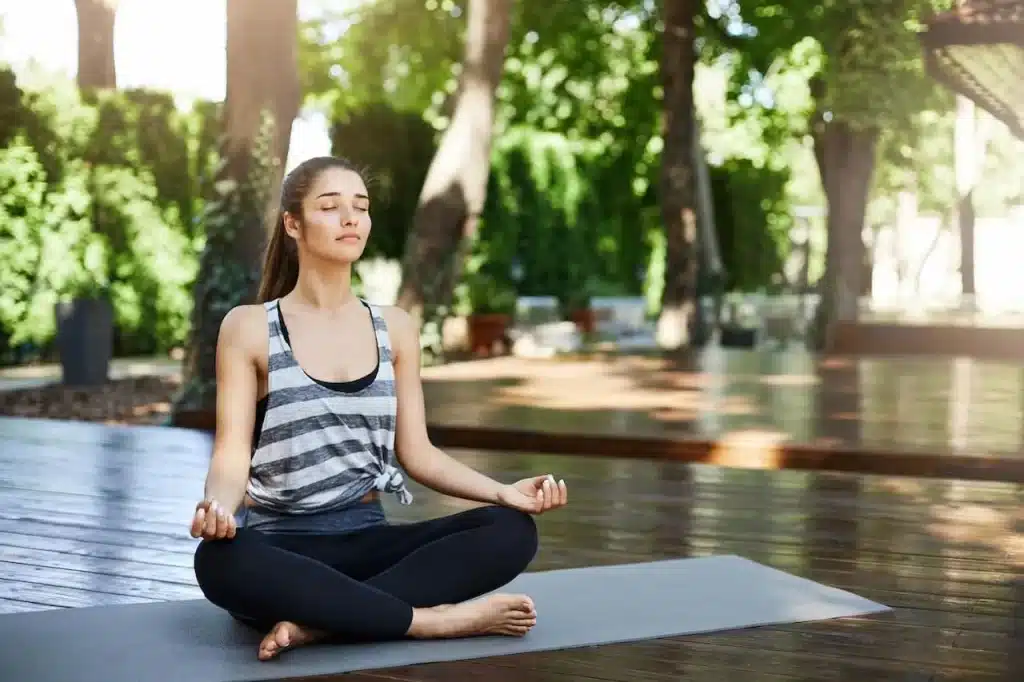In 2025, stress management is evolving rapidly, moving beyond traditional techniques and embracing lifestyle practices that are practical, accessible, and effective. With increased awareness about mental health and well-being, people are seeking everyday practices that reduce stress while fitting seamlessly into busy routines. From mindful technology use to community-based wellness initiatives, these emerging practices reflect a shift toward integrated, holistic approaches to mental health.
By incorporating these strategies into your daily life, you can cultivate resilience, improve emotional stability, and enhance overall well-being. This article explores the latest trends in stress reduction and provides actionable steps to implement them in 2025.

1. Mindful Technology Use
Digital devices are indispensable in modern life, but excessive screen time can contribute to anxiety, disrupted sleep, and cognitive overload. Mindful technology use is becoming a crucial practice for stress reduction, helping individuals maintain mental clarity and emotional balance.
Practical Strategies:
- Set Screen Time Limits: Monitor and limit the time spent on smartphones, computers, and social media platforms. Reducing evening screen exposure can improve sleep quality, which is critical for stress management.
- Designate Tech-Free Zones: Create areas in your home, such as the bedroom or dining room, where digital devices are not allowed. This promotes relaxation and encourages interpersonal connections.
- Scheduled Digital Detox: Set aside specific times during the week to disconnect from all digital devices, allowing your mind to rest and recharge.
Emerging studies suggest that intentional reduction in digital engagement can significantly decrease anxiety and improve overall mental well-being, making this one of the most accessible everyday practices that reduce stress.
2. Emotional Architecture in Living Spaces
Our environment profoundly affects our mental health, and in 2025, the concept of emotional architecture is gaining traction. Emotional architecture refers to designing spaces that enhance well-being by promoting calm, reducing clutter, and optimizing sensory experiences.
Implementation Tips:
- Natural Materials: Incorporate wood, stone, and indoor plants to create grounding and calming atmospheres.
- Lighting Optimization: Use lighting that mimics natural sunlight to regulate circadian rhythms, which affects sleep, energy, and mood.
- Calm Zones: Designate specific areas for relaxation, meditation, or mindfulness practices, using soothing colors, textures, and ambient sounds.
By thoughtfully designing living spaces, individuals can experience lower stress levels, greater focus, and improved mental clarity—demonstrating how environmental changes can serve as everyday practices that reduce stress.
3. AI-Enhanced Wellness Practices
Artificial intelligence is transforming wellness by offering personalized tools that support mental and emotional health. AI-enabled apps analyze behavior patterns and provide tailored recommendations for meditation, sleep, and stress management.
How to Use AI Tools Effectively:
- Personalized Wellness Apps: Explore AI-driven apps that create individualized meditation routines, exercise suggestions, or sleep improvement plans.
- Mood Tracking: Record your emotional state daily, helping you identify stress triggers and patterns.
- Follow Recommendations: Implement AI suggestions to optimize daily routines and maintain consistent wellness practices.
By leveraging AI, individuals can create structured and personalized approaches to stress reduction, making these tools a growing trend in everyday practices that reduce stress.
4. Digital Detox Retreats
The need to unplug from technology has given rise to digital detox retreats. These retreats encourage participants to disconnect from screens and immerse themselves in environments that promote mental clarity, relaxation, and stress reduction.
Planning a Digital Detox:
- Select a Retreat: Choose retreats that align with your personal interests, such as nature immersion, creative workshops, or wellness-focused programs.
- Prepare in Advance: Communicate your absence to colleagues and family, and arrange responsibilities to minimize stress while away.
- Engage Fully: Participate in retreat activities to maximize the benefits of disconnecting, from mindfulness sessions to guided nature walks.
Digital detox retreats are gaining popularity because they provide structured opportunities to reset mental habits and reduce technology-related stressors, offering a tangible and immersive approach to well-being.
5. Mindful Movement Practices
Physical activity is a cornerstone of stress management, but in 2025, mindful movement practices are emerging as particularly effective. These practices combine physical exercise with mental focus, helping the body release tension while the mind remains present.
Examples of Mindful Movement:
- Yoga: Promotes flexibility, strength, and mindfulness. Even short daily sessions can significantly reduce stress levels.
- Tai Chi: Combines gentle physical movement with focused breathing, enhancing both physical and emotional balance.
- Mindful Walking: Taking walks while consciously focusing on breathing, surroundings, and body sensations increases mindfulness and reduces stress.
- Community Classes: Joining group sessions encourages consistency and provides social support, reinforcing the benefits of mindful exercise.
These activities highlight the intersection of physical health and mental well-being, making mindful movement a cornerstone of everyday practices that reduce stress.
6. Mental Health Awareness and Mindfulness
Awareness of mental health is central to stress reduction. Practices such as meditation, journaling, and deep-breathing exercises are becoming integrated into daily routines, reflecting a broader cultural shift toward proactive mental well-being.
Practical Strategies:
- Daily Mindfulness: Set aside 10–15 minutes for meditation, breathing exercises, or guided reflection.
- Professional Support: Utilize therapy or counseling services, either online or in-person, to manage stress and develop coping strategies.
- Self-Education: Learn about mental health to reduce stigma, foster self-awareness, and make informed lifestyle choices.
Mindfulness and mental health awareness are key everyday practices that reduce stress because they cultivate resilience and emotional balance, helping individuals navigate daily challenges effectively.
7. Community-Based Wellness Initiatives
Social connection is a powerful stress reducer. Community-based wellness initiatives, such as group meditation, walking clubs, or wellness workshops, are emerging as accessible ways to reduce stress while fostering meaningful social bonds.
Getting Involved:
- Participate in Local Groups: Community wellness events provide support and accountability.
- Organize Activities: Hosting group walks, yoga sessions, or mindfulness circles encourages collective engagement.
- Provide Support: Encouraging others within your community strengthens social bonds and reinforces positive mental health behaviors.
These initiatives highlight the importance of social interaction in managing stress and demonstrate how integrating communal wellness practices into daily life can improve both emotional and social well-being.
Conclusion
Everyday practices that reduce stress are increasingly recognized as essential components of modern life in 2025. Mindful technology use, emotional architecture, AI-enhanced wellness, digital detox retreats, mindful movement, mental health awareness, and community-based initiatives provide practical and accessible strategies to foster resilience, emotional balance, and mental clarity.
Integrating these practices into your daily life can lead to long-term improvements in well-being. By adopting small, sustainable habits, you can manage stress effectively, maintain focus, and cultivate a more balanced lifestyle in the face of modern challenges. Prioritizing these everyday practices that reduce stress now can help ensure lasting mental and emotional health for years to come.
References
- Ubertrends. (2025, June 13). 10 lifestyle trends shaping our future in 2025. Available at: https://ubertrends.com (Accessed: 18 August 2025).
- Global Wellness Institute. (2025, April 2). Lifestyle Medicine Initiative Trends for 2025. Available at: https://globalwellnessinstitute.org (Accessed: 18 August 2025).
- Lawyers Mutual Insurance Company of North Carolina. (2025, January 28). Five of the hottest new wellness trends to elevate your mind and body in 2025. Available at: https://lawyersmutualnc.com (Accessed: 18 August 2025).









